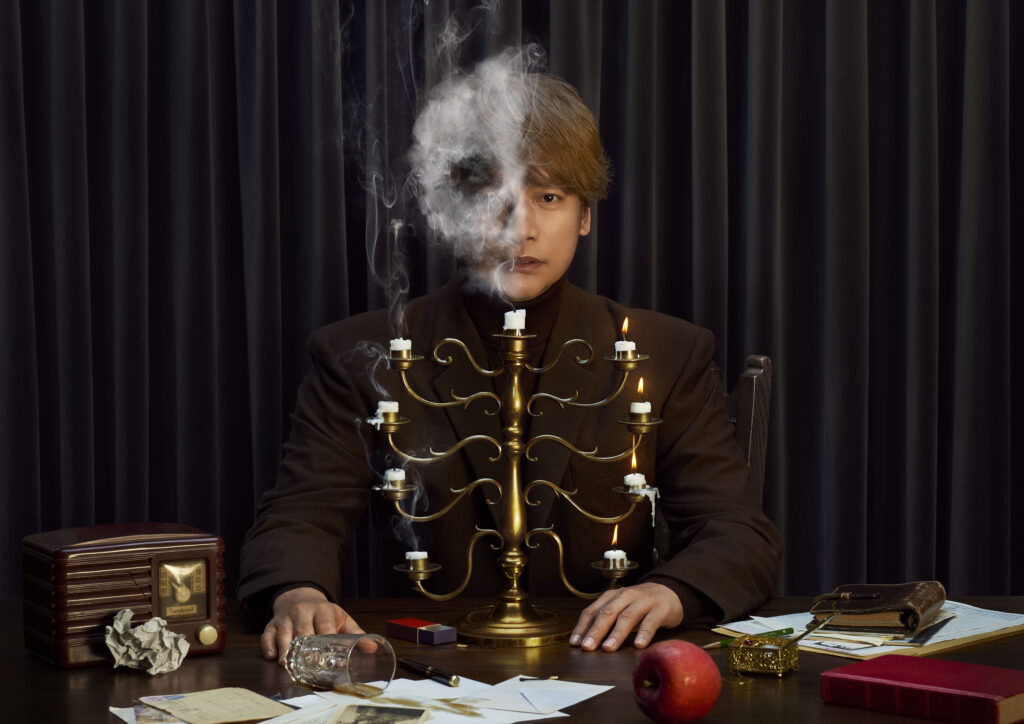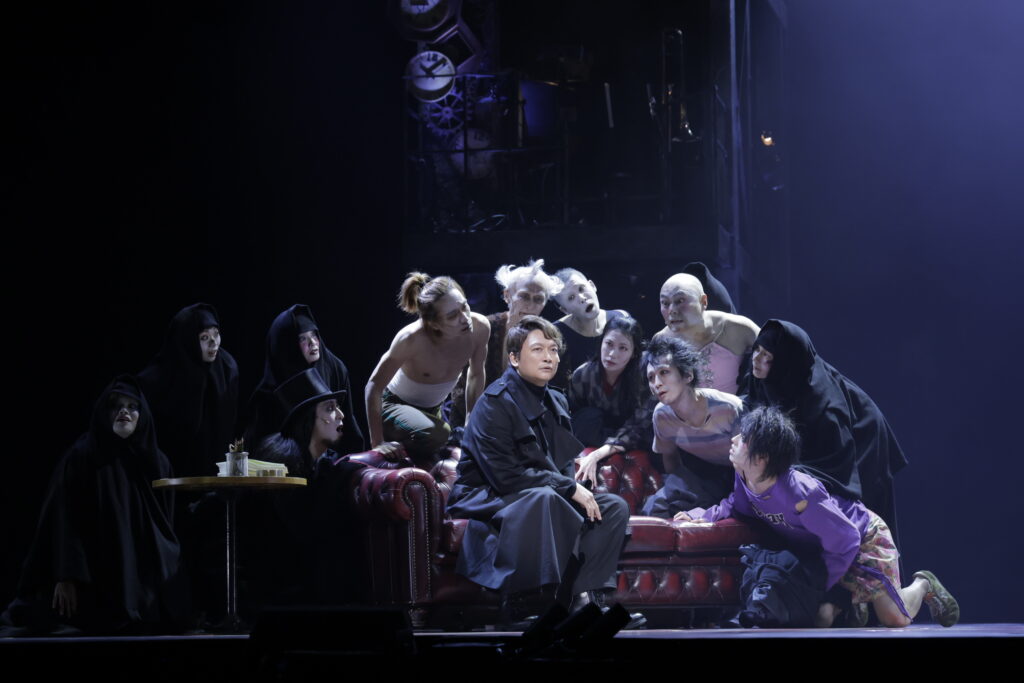
Even now, more than 40 years after he died, Shuji Terayama remains one of Japan’s most internationally influential artists, with his work continuing to have a huge impact on succeeding generations both in Japan and worldwide.
As an avant-garde dramatist, poet, writer, film director and photographer, the Hirosaki, Aomori Prefecture native gave full play to his provocative creative abilities before he succumbed to cirrhosis of the liver on May 4, 1983, at the age of 47.
Since that anniversary last year, there have been many Terayama-related productions across a range of fields. Among them, however, what promises to be a standout is “Terayama Cabaret,” a grand-scale theatre project created as if it was set the day before Terayama passed away.

So, supposedly on May 3, 1983, a character called Death appears at Terayama’s bedside and asks him to present the best work he ever made. To help him do this, Death gives him three magic matches capable of taking him to any time in the past or future that inspires his creative desire. With their help, Terayama heads off to the last rehearsal for what he imagines will be his best-ever stage production.
In this star-studded play, the cast includes Shingo Katori, a long-time member of the now disbanded top idol group SMAP, who represents Terayama in his standoff with Death, played here by Ruumi Nagina, a leading actor in the renowned all-female Takarazuka theatre troupe.

Meanwhile, this new work is directed by its writer, the British theatre director David Leveaux, a five-time Tony Award nominee who has worked extensively on Japanese productions.
In dedicating this challenging piece to the great theatre icon Shuji Terayama, Leveaux commented: “This work isn’t aimed at reviving Terayama. However, his subjects were often socially and physically weak outcasts, so if he was still alive how would he describe today’s society? How would his dazzling light of creativity illuminate the strange, hilarious and sometimes extraordinarily beautiful aspects of life if he was still with us in this stormy world?”
“Terayama Cabaret” runs through Feb. 29 at the Nissay Theater in Hibiya, Tokyo, then Mar. 5–10 at the Umeda Arts Theater in Osaka.
For more details, visit https://www.umegei.com/terayama_cabaret2024/

